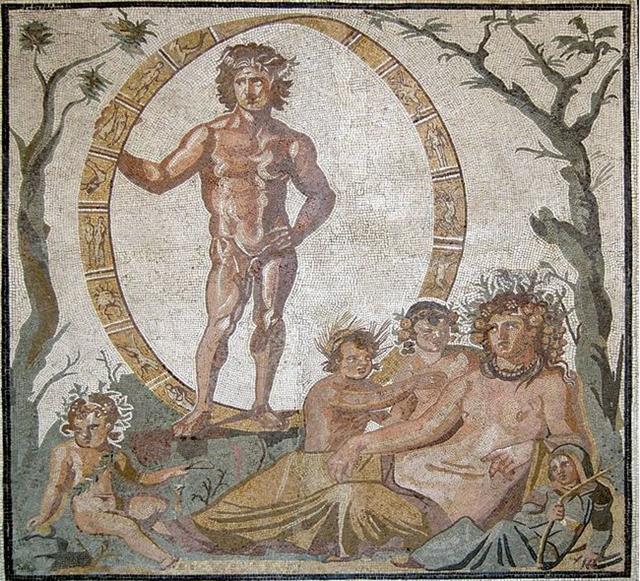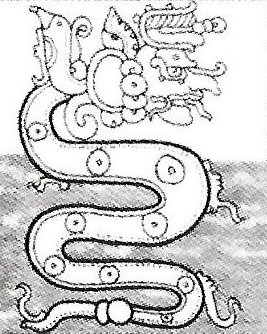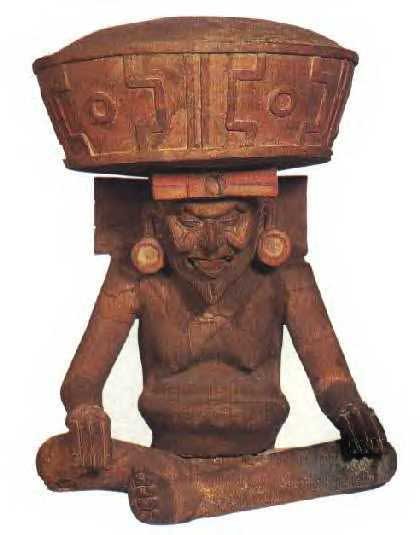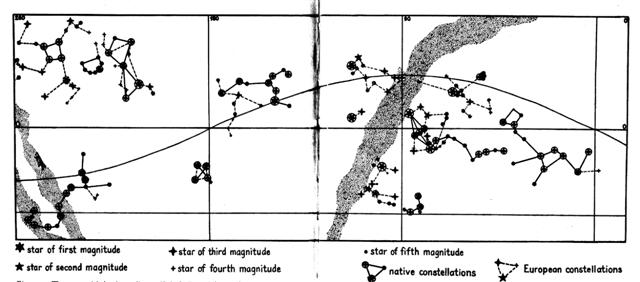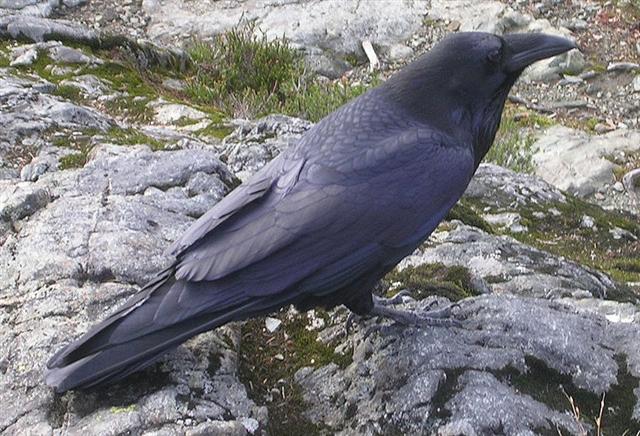Once again. If we should count December 31 not as the last day of a year but as its first, then JANUARY 31 will become day 32 (= 396 - 364) and FEBRUARY 4 become day 36 (= 400 - 364):
The rope of the Magician (Tahu) - from Spica and all the way up to the fox star Alcor - had moved due to the precession and it was no longer rising heliacally in day 241 (= 187 days after Terminalia) at the beginning of a new year.
And had Gregory XIII placed the stars correctly in his new calendar, it would have been in day 237 (= 8 * 29 ½ + 1), i.e. 183 (= 366 / 2) days after Terminalia (54 = 237 - 183). ... When the Pope rearranged the day for spring equinox from number 84 ('March 25) to number 80 (ºMarch 21) the earlier Julian structure was buried, was covered up (puo). At the same time the Pope deliberately avoided to correct the flow of Julian calendar days for what he may have regarded as 4 unneccesary leap days prior to the Council of Nicaea. Thus his balance sheet for days was in order. The day numbers counted from the equinox were increased with 4 and this was equal to allowing the 4 'unneccessary' leap days to remain in place. But he had moved spring equinox to a position which was 4 days too early compared to the ancient model. And he had also broken the Julian connection between the Sun year and the Sirius year. The Julian year was precisely as long as the Sirius year, but the new Gregorian year was slightly shorter - due to fewer leap days - and no longer was Sirius going to stand still in the calendar, no longer would Sirius be a marvellous star; only the brightest, which however was no mystery because there had to be some star which was brightest ...
Therefore Gregory in a way had moved Terminalia ahead from day 54 (February 23) to July 6 (187). 187 - 64 (time of the Bull) + 41 (time of Bharani) = 164 (June 13), and 187 - 164 = 23 (the precessional distance from Gregory XIII down to Roman times).
... Xiuhtecuhtli, the fire god, as Huehueteotl, 'the old god at the centre'. One of the oldest deities of ancient America, this clay figure from the Veracruz culture shows him seated with a brazier on his head. Xiuhtecuhtli was lord of the present 'Sun', or era, his ceremonies being particularly important at the end of every fifty-two-year cycle when all fires were put out and a fresh one was kindled on a prisoner's breast in order to keep time moving ... From the time of the Bull and up to the time of Bharani the stars - together with 'the 'thong of the yoke which holds together heaven and earth' - would have shifted 64 - 41 = 23 days forward in the Sun calendar due to the precession. "February 23 (Terminalia) - 23 = JANUARY 31 (396). And at the time of rongorongo the rope would have moved another 41 days ahead.
October 9 (282) - "August 29 (241) = 41. And AUGUST 6 (218 - or 214 if the Pope had been true) + 64 = October 9 (282, or rather 282 - 4 = 278). ... They go inland at the land. The child nursed and tended grows up, is able to go and play. Each day he now goes off a bit further away, moving some distance away from the house, and then returns to their house. So it goes on and the child is fully grown and goes to play far away from the place where they live. He goes over to where some work is being done by a father and son. Likāvaka is the name of the father - a canoe-builder, while his son is Kiukava. Taetagaloa goes right over there and steps forward to the stern of the canoe saying - his words are these: 'The canoe is crooked.' (kalo ki ama). Instantly Likāvaka is enraged at the words of the child. Likāvaka says: 'Who the hell are you to come and tell me that the canoe is crooked?' Taetagaloa replies: 'Come and stand over here and see that the canoe is crooked.' Likāvaka goes over and stands right at the place Taetagaloa told him to at the stern of the canoe. Looking forward, Taetagaloa is right, the canoe is crooked. He slices through all the lashings of the canoe to straighten the timbers. He realigns the timbers. First he must again position the supports, then place the timbers correctly in them, but Kuikava the son of Likāvaka goes over and stands upon one support. His father Likāvaka rushes right over and strikes his son Kuikava with his adze. Thus Kuikava dies. Taetagaloa goes over at once and brings the son of Likāvaka, Kuikava, back to life. Then he again aligns the supports correctly and helps Likāvaka in building the canoe. Working working it is finished ... The precession had moved the star in the middle (Ana-roto) so far away from its proper place at the end of high summer, that the Magician (Te Tahu) became furious for having to wait for so long. Therefore he climbed up and cut the boy to pieces. Deneb Okab is in the asterism Antinous (the boy who so mysteriously disappeared):
... In late September or early October 130, Hadrian and his entourage, among them Antinous, assembled at Heliopolis to set sail upstream as part of a flotilla along the River Nile. The retinue included officials, the Prefect, army and naval commanders, as well as literary and scholarly figures. Possibly also joining them was Lucius Ceionius Commodus, a young aristocrat whom Antinous might have deemed a rival to Hadrian's affections. On their journey up the Nile, they stopped at Hermopolis Magna, the primary shrine to the god Thoth. It was shortly after this, in October [in the year A.D.] 130 - around the time of the festival of Osiris - that Antinous fell into the river and died, probably from drowning. Hadrian publicly announced his death, with gossip soon spreading throughout the Empire that Antinous had been intentionally killed. The nature of Antinous's death remains a mystery to this day, and it is possible that Hadrian himself never knew; however, various hypotheses have been put forward. One possibility is that he was murdered by a conspiracy at court. However, Lambert asserted that this was unlikely because it lacked any supporting historical evidence, and because Antinous himself seemingly exerted little influence over Hadrian, thus meaning that an assassination served little purpose. Another suggestion is that Antinous had died during a voluntary castration as part of an attempt to retain his youth and thus his sexual appeal to Hadrian. However, this is improbable because Hadrian deemed both castration and circumcision to be abominations and as Antinous was aged between 18 and 20 at the time of death [18 < † < 20], any such operation would have been ineffective. A third possibility is that the death was accidental, perhaps if Antinous was intoxicated. However, in the surviving evidence Hadrian does not describe the death as being an accident; Lambert thought that this was suspicious. Another possibility is that Antinous represented a voluntary human sacrifice. Our earliest surviving evidence for this comes from the writings of Dio Cassius, 80 years after the event, although it would later be repeated in many subsequent sources. In the second century Roman Empire, a belief that the death of one could rejuvenate the health of another was widespread, and Hadrian had been ill for many years; in this scenario, Antinous could have sacrificed himself in the belief that Hadrian would have recovered. Alternately, in Egyptian tradition it was held that sacrifices of boys to the Nile, particularly at the time of the October Osiris festival, would ensure that the River would flood to its full capacity and thus fertilize the valley; this was made all the more urgent as the Nile's floods had been insufficient for full agricultural production in both 129 and 130. In this situation, Hadrian might not have revealed the cause of Antinous's death because he did not wish to appear either physically or politically weak ... Then the Magician (respectively Tae-tagaroa) restored the boy to life again and the star in the middle became Wasat. And the Crow constellation was now at autumn equinox. ... Merope often is considered the Lost Pleiad, because, having married a mortal, the crafty Sisyphus, she hid her face in shame when she thought of her sisters' alliances with the gods, and realized that she had thrown herself away. She seems, however, to have recovered her equanimity, being now much brighter than some of the others. The name itself signifies 'Mortal' ... Electra, although for at least two or three centuries the title of a clearly visible star, has been regarded as the Lost Pleiad, from the legend that she withdrew her light in sorrow of witnessing the destruction of Ilium, which was founded by her son Dardanos ... or, as Hyginus wrote, left her place to be present at its fall, thence wandering to Mizar as Άλώπηξ, the Fox, the Arabs' Al Suhā, and our Alcor. Ovid called her Atlantis, personifying the family. The Pirt-Kopan-noot tribe of Australia have a legend of a Lost Pleiad, making this the queen of the other six, beloved by their heavenly Crow, our Canopus, and who, carried away by him, never returned to her home ...
The myths say Corvus also failed to return in time: ... the bird [Raven], being sent with a cup for water, loitered at a fig-tree till the fruit became ripe, and then returned to the god with a water-snake in his claws and a lie in his mouth, alleging the snake to have been the cause of the delay.
In punishment he was forever fixed in the sky with the Cup and the Snake; and, we may infer, doomed to everlasting thirst by the guardianship of the Hydra over the Cup and its contents. From all this came other poetical names for our Corvus - Avis Ficarius, the Fig Bird; and Emansor, one who stays beyond his time; and a belief, in early folk-lore, that this alone among birds did not carry water to its young ...
... The Pythagoreans make Phaeton fall into Eridanus, burning part of its water, and glowing still at the time when the Argonauts passed by. Ovid stated that since the fall the Nile hides its sources. Rigveda 9.73.3 says that the Great Varuna has hidden the ocean. The Mahabharata tells in its own style why the 'heavenly Ganga' had to be brought down. At the end of the Golden Age (Krita Yuga) a class of Asura who had fought against the 'gods' hid themselves in the ocean where the gods could not reach them, and planned to overthrow the government. So the gods implored Agastya (Canopus, alpha Carinae = Eridu) for help. The great Rishi did as he was bidden, drank up the water of the ocean, and thus laid bare the enemies, who were then slain by the gods. But now, there was no ocean anymore! Implored by the gods to fill the sea again, the Holy One replied: 'That water in sooth hath been digested by me. Some other expedient, therefore, must be thought of by you, if ye desire to make endeavour to fill the ocean ...
|
||||||||||||||||||||||||||||||||||||||||||||||||||||||||||||||||||||||||||||||||||||||||||||||||||||||||||||||||||||||||||||||||||||||||||||||||||||||||||||||||||||||||||||||||||||||||||||||||||||||||||||||||||||||||||||||||||||||||||||||||||||||||||||||||||||||||||||





